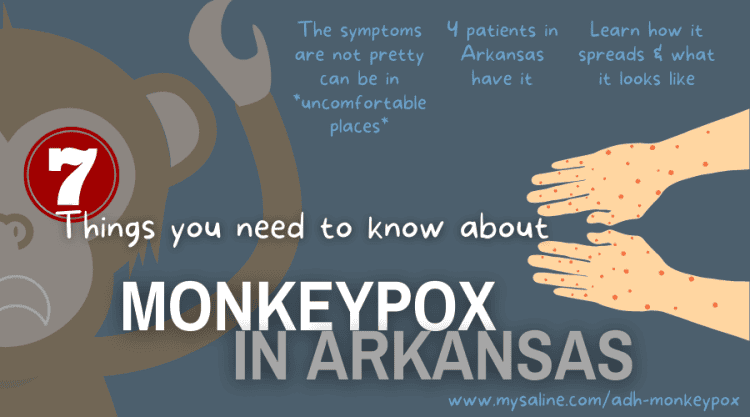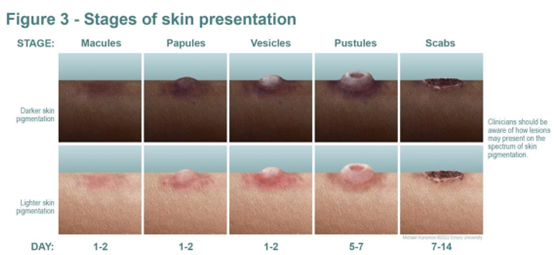The Arkansas Department of Health (ADH) wants the public to be aware that cases of monkeypox in the United States are increasing. There are now 3,486 cases in the U.S., with 4 of those in Arkansas. The first in the state was diagnosed in May 2022.
Here are 7 things you need to know about MONKEYPOX in Arkansas, according to the ADH:
1. How is it spread?
Monkeypox is spread through close contact and can be transmitted to anyone regardless of age, gender, sexual orientation, race, and ethnicity. It can be spread by direct skin-to-skin contact with infectious rash, scabs, or body fluids. This can include household and/or intimate contact.
Spreading can also occur when contacting contaminated items, such as clothing. It can also be transmitted through respiratory secretions during prolonged, face-to-face contact.
2. How is it not spread?
However, it is not an airborne illness. Monkeypox is not spread through casual, brief conversations or walking by someone with monkeypox, like at a grocery store.
3. Who is more at risk?
Currently the highest risk group for contracting monkeypox is men who have sex with men. However, anyone can contract the illness. The CDC has confirmed two pediatric cases in the US, as well as a small number of infections in pregnant women.
4. What are the symptoms?
Symptoms, including fever, headache, muscle pain, and a rash, occur seven to 14 days after exposure. Typically, the rash starts one to three days after the other symptoms start. However, the rash has been the initial symptom for some people, and the only symptom for others. The rash may be located on or near the genitals or anus but could also be on other areas like the hands, feet, chest, or face. The sores can look like pimples or blisters and may be painful or itchy.
5. How is it treated?
Antiviral drugs are effective treatments against the illness. Most people who test positive do not require treatment. However, the ADH has a small supply of the antiviral medication, TPOXX. This medication will be used for severe cases, for those with a high risk of having severe illness, or for those whose lesions are on concerning areas of the body, like on the eyes.
6. Is there a vaccine?
Arkansas has been allocated a limited number of doses of Jynneos, the monkeypox vaccine. Those who are eligible for the vaccine include people who have had close contact with a known or suspected case in the last 14 days or those who have had a high-risk encounter in a setting or event where monkeypox has been reported to be spreading. Your health care provider will help decide if treatment is needed and prescribe it to you.
7. How do I get more info?
For more information on monkeypox, visit the ADH website at THIS LINK.


















